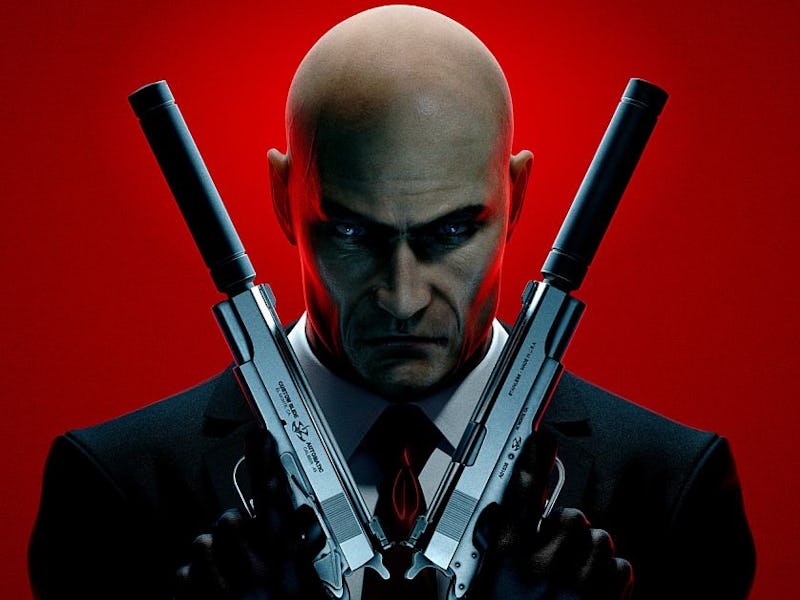Hitman Absolution Is a Weird But Fun Departure for the Stealth Series
Sometimes the odd on out is still worth playing.

Let’s get this out of the way up front: Hitman Absolution is a weird game. It’s a considerable departure from the rest of the series, trading in wide-open, puzzle-like levels and a negligible plotline for linearity and a Michael Mann-esque action thriller story. It was not received well by fans when it was released in 2012, many of who had waited six years for a new game in the franchise.
Some 12 years later, however, I believe time has been kinder to Hitman: Absolution than we expected. Developer IO Interactive eventually sated the fanbase with the excellent Hitman: World Of Assassination trilogy. And with those games offering a definitive, modern Hitman experience, it's easier to accept Absolution as the weird off-shoot that manages to provide a fun alternate take on the tried and true formula.
In Hitman: Absolution, players once again take control of Agent 47, a genetically enhanced clone turned hired assassin carrying out contracts for the International Contract Agency (ICA). This time around, Agent 47 is on the run from his employer. Agent 47’s handler Diana has been murdered, and her dying wish is to keep the genetically enhanced teenage girl she’s been looking after out of the ICA’s hands. 47 agrees and sets off on an adventure across the U.S. on the run from the law and the organization he once worked for.
No other Hitman game has the forward moment of Hitman: Absolution thanks to its more linear level design and contracts.
It’s a pretty thin plot that looks stylish telling its nonsensical story. But the performances are solid and the cutscenes are well-directed (again, Michael Mann seems to be a big inspiration). Its graphics are also gorgeous, even more than a decade removed from its launch on 360, PS3, and PC. Levels are densely packed with people and set dressing, keeping with the series’ gritty yet clinical and high-class aesthetic.
With Absolution’s more straightforward plot, levels are built around what Agent 47 must do to keep the teen safe. The gameplay typically revolves around 47 sneaking from one end of the level to the other by using all of the familiar abilities at his disposal. Using disguises picked up from patrols, crouching behind walls, and hiding bodies are all still here, but there’s less opportunity for emergent moments to spin out of the player’s successes and errors.
As a result, Absolution is more Splinter Cell than Hitman, emphasizing good old-fashioned stealth and smart use of the level rather than piecing together elaborate ways of making slayings look like an accident. So long as players know the game’s structure is very different from the recent trilogy or 2006’s Hitman: Blood Money, it’s easier to accept that Absolution is still a fun stealth action game. Controls are extremely tight, being one of the only elements IO Interactive retained for the 2016 reboot of the series. Choking out enemies or slipping past them entirely feels as great as it did in 2012.
Agent 47 still has access to all of his iconic weapons despite not being employed by the ICA in Absolution.
The focus on stealth doesn’t mean there aren’t assassinations to be done along the way. But these assassination sections aren’t about slowly unraveling the massive puzzle of how to gain access to your target. Absolution’s level design keeps you moving forward and the assassination sections are no different. Levels are much smaller and solutions are more obvious. You won’t need to explore every nook and cranny to find the right disguises or keycards, as they’ll often be just off the linear path.
When you execute your target in Absolution, you won’t feel anywhere near as smart as you would in some of the newer games. But that also means less trial and error. Absolution is more focused on making you feel cool at all times rather than making you doggedly crack the code of how to accomplish your mission. No other Hitman game has the forward moment of Absolution. And that makes for a tense but action-packed 10-hour campaign.
Absolution is Hitman with the sensibilities of a big-budget Call Of Duty campaign. It’s far from the best game in the series, but there are still so many undeniably memorable setpieces and assassinations. I think even the most dogmatic fans of the franchise have to admit scenes like the escape from the Chicago Police Department or the haunting barbershop assassination missions are some of the biggest highs in the series. Again, Absolution is the weird one. But it doesn’t mean IO Interactive wasn’t still cooking when it decided to deviate from the past.
The barbershop mission is one of the most memorable assassinations in franchise history.
The best comparison I can make with Absolution is with other weird spinoffs like Metal Gear Rising: Revengence or Splinter Cell: Conviction. Both of these games break from what players expect from Metal Gear or Splinter Cell. And while it's easy to balk at developers trying something so alien to what gamers love about their respective franchises, it’s also exciting to see them mess with the formula and do something new once you distance yourself from those expectations.
Absolution may have been a crushing disappointment when it came out. Its differences from its predecessor, Hitman: Blood Money, and the games that were released after it makes the redheaded stepchild of the series. But removed from its lineage, Absolution is far from a fumble.